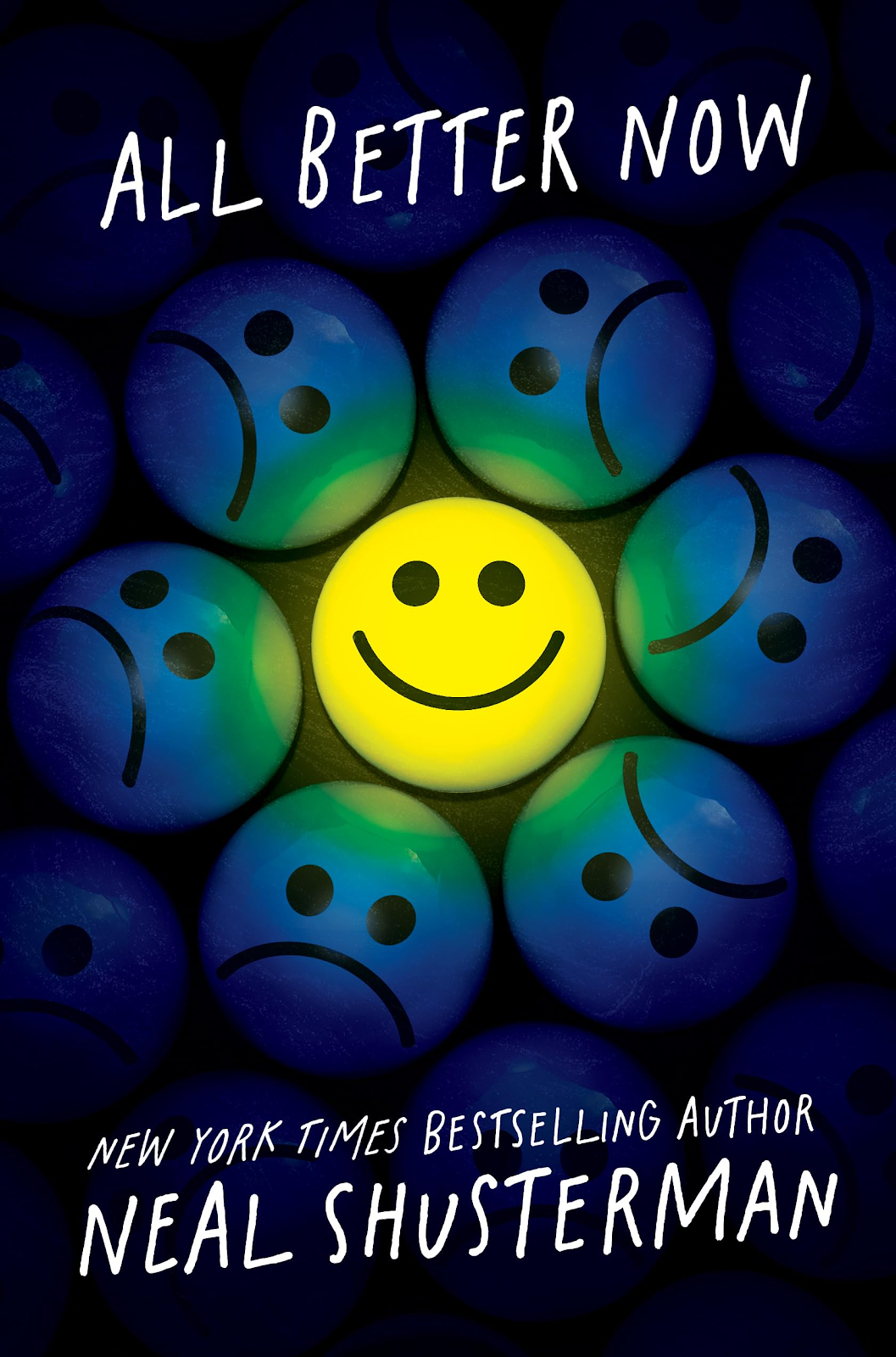An unprecedented condition is on the rise. It behaves like a virus, with the first symptom being a fever, but those who contract it experience long-term effects no one has ever seen utter contentment. Soon after infection, people find the stress, depression, greed, and other negative feelings that used to weigh them down are gone.
Almost everyone revels in this mass unburdening. But people in power—who depend on malcontents tuning into their broadcasts, prey on the insecure to sell their products, and convince people they need more, new, faster, better everything—know this new state of being is bad for business. Soon, campaigns start up convincing people that being happy all the time is dangerous. There’s even a vaccine developed to rid people of their inner peace and get them back to normal because, surely, without anger or jealousy as motivators, productivity will grind to a halt and the world will be thrown into chaos.
It’s nearly impossible to determine the truth when everyone with a platform is pushing their own agendas, and two teens from very different backgrounds who’ve had their lives upended in different ways by the virus find themselves enmeshed in the center of a dangerous power play. Can they reveal the truth?
This is a difficult review to write. I loved the idea of this book, and Shusterman knows how to write; his characters are distinct and his ideas are clever. However I felt this book didn't quite live up to his normal standards.
The idea is fascinating. A disease that, if you're one of the nineteen in twenty who survive it, leaves you in a permanent state of happiness. No worries, no stress, just happiness. Companies around the world panic; capitalism depends on people feeling bad about themselves. Survivors start giving away their belongings or forming communes with other survivors.
It's a clever idea, but I never felt that the survivors were happy, exactly; more like they were incapable of thinking ahead. There are a couple of sequences where survivors see people in mortal danger and are compelled to help, putting themselves in danger or even dying. A survivor who is a 'super spreader' takes it on themself to spread the disease to everyone possible, despite knowing that one in twenty of them will die. We're clearly meant to be debating the morality of these things, but I don't think there's much to debate, personally.
However I loved reading this, I'll be keeping an eye out for the next one (there'd better be a next one after that ending!) and I'll recommend it to others, as I don't think my problems with it will be universal.
Book Recommendation:
- The Giver by Lois Lowry: This classic dystopian novel explores a society where emotions and individuality are suppressed for the sake of peace and order. Like Shusterman’s book, it raises questions about the cost of contentment and the role of emotions in our humanity.
Movie/TV Show Recommendation:
- Equilibrium (2002): This dystopian action film centers on a world where emotions are chemically suppressed to maintain order. The protagonist’s awakening to the value of emotion mirrors some of the ethical debates in Shusterman’s story. It’s intense, thought-provoking, and visually striking.
All Better Now publishes on the 4th February, 2025 in the US and in summer 2025 in the UK. I received a free copy and am giving an honest review.

No comments:
Post a Comment